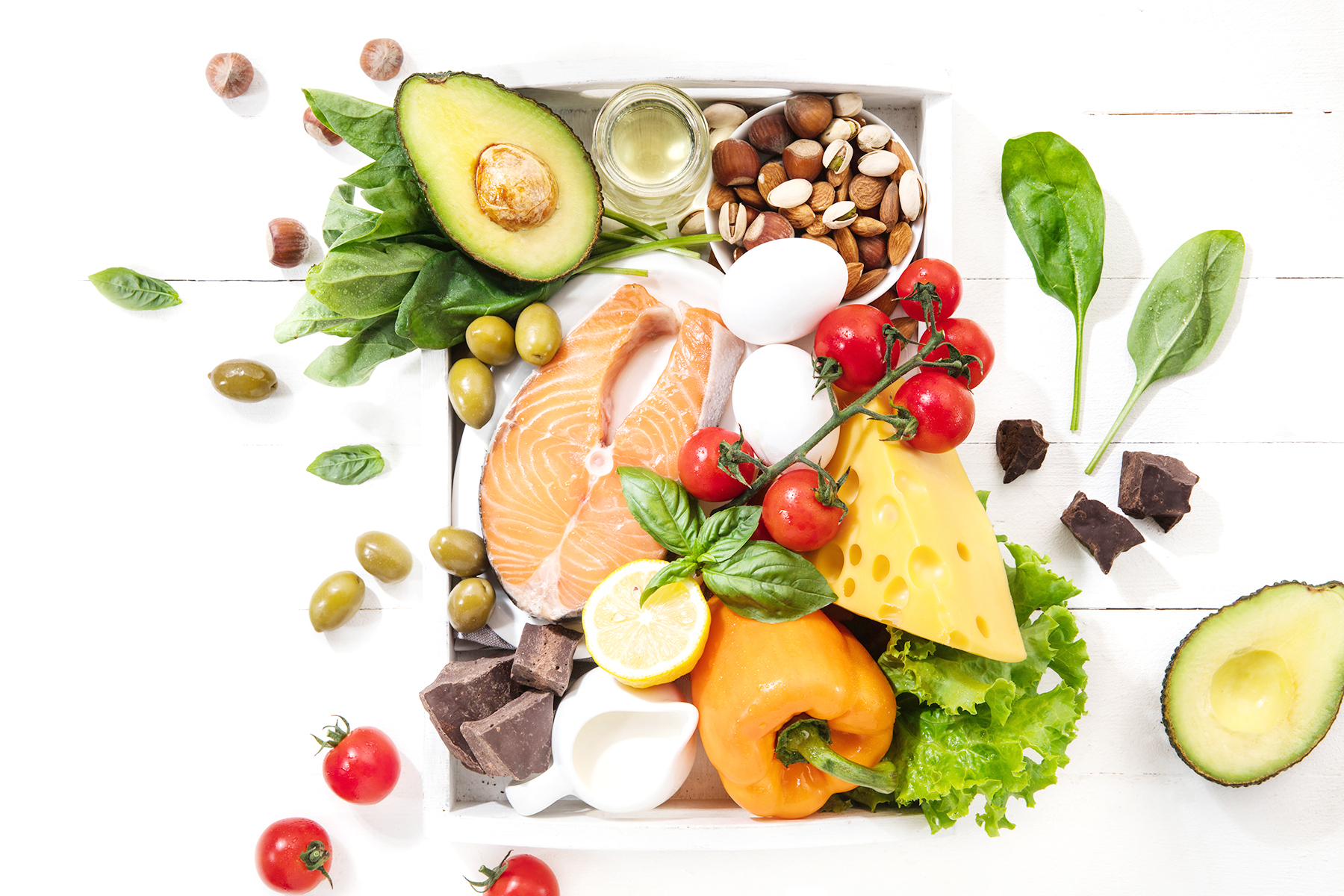At A Glance
- Yes, high-fat and low-carb diets may work for some—but it may be hard to follow and may include increased intakes of processed, unhealthy, and salty foods that are not beneficial in the long run.
By Jasmine B. Suiza, RND

“Fat is bad for your health!”
“Fat makes you fat!”
“A high-fat diet is the newest trend!”
The spectrum of myths and misconceptions involving fat, as they say, are too many to mention. Some people think of it as an evil nutrient, while others hail it for its weight loss “prowess.” What should you really believe in?
Here are five myths about fats that everyone—including the “nutrition and fitness gurus”—should unlearn.
Myth #1: I can eat any fat when doing the Ketogenic Diet
While it is true that the Ketogenic / Keto Diet involves moderate protein and very high fat intake, it is important to note that there are dietary sources of healthy fats for this method to be considered safe. Healthy food for Keto Diet includes fatty fish (salmon, tuna, mackerel), meats (chicken, beef, pork), unprocessed cheeses, avocado, plant oils (extra virgin olive oil, avocado oil, coconut oil), butter and cream from grass-fed cows, nuts, and seeds.
Not all fats are created equal—some fats are healthy and beneficial!
Myth #2: Consuming a high-fat, low-carb diet is the optimal method to lose weight
Though lots of weight loss diets are on the rise, a healthy and balanced diet focused on eating high quality and unprocessed food like lean meat, fruits, vegetables, grains, legumes and healthy fats is still the optimal way to achieve your fitness goals sustainably. Yes, high-fat and low-carb diets may work for some—but it may be hard to follow and may include increased intakes of processed, unhealthy, and salty food that is not beneficial in the long run. Talk to a registered nutritionist —dietitian to know more about your daily energy and nutrient requirements for weight loss!
Myth #3: Avocado contains cholesterol
While fruits primarily contain carbohydrates, avocado has high amounts of healthy fats. This unique fruit contains monounsaturated fatty acids or MUFA, and not cholesterol, as most people thought. Not only that—avocado is also loaded with vitamins, minerals, fiber, anti-cancer, anti-inflammatory, and heart-healthy nutrients! One study even found out that a burger eaten with half an avocado may prevent inflammation compared with eating the burger alone! Guacamole, anyone?
Myth #4: Dietary fat increases bad cholesterol levels
Dietary fat per se does not increase bad cholesterol or LDL levels—trans fat does. Hydrogenated oils in processed food (think fast food, commercially baked foods, donuts, packaged snack food, vegetable shortening) may raise bad (LDL) cholesterol and lower good (HDL) cholesterol, resulting to an increased risk in cardiovascular diseases, stroke, and even diabetes. Select monounsaturated and polyunsaturated fats a.k.a. the healthy fats, and be sure to always check the nutrition information to avoid trans fat in your food.
Myth #5: “Fat-free” foods are “calorie-free”
A food product may be “fat-free,” but it does not necessarily mean that it is also “calorie-free”. To make a product “fat-free,” fat is often replaced with carbohydrate sources like sugar, refined grains, or other starches—increasing its caloric density.
“Diet” or “weight loss” food items are often filled with hidden ingredients, so be mindful of the label.
Sometimes, you need to unlearn to move forward! May these facts help you choose your fat sources wisely!